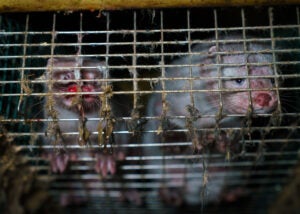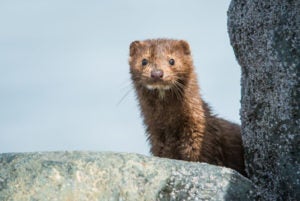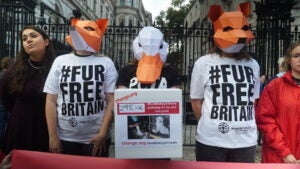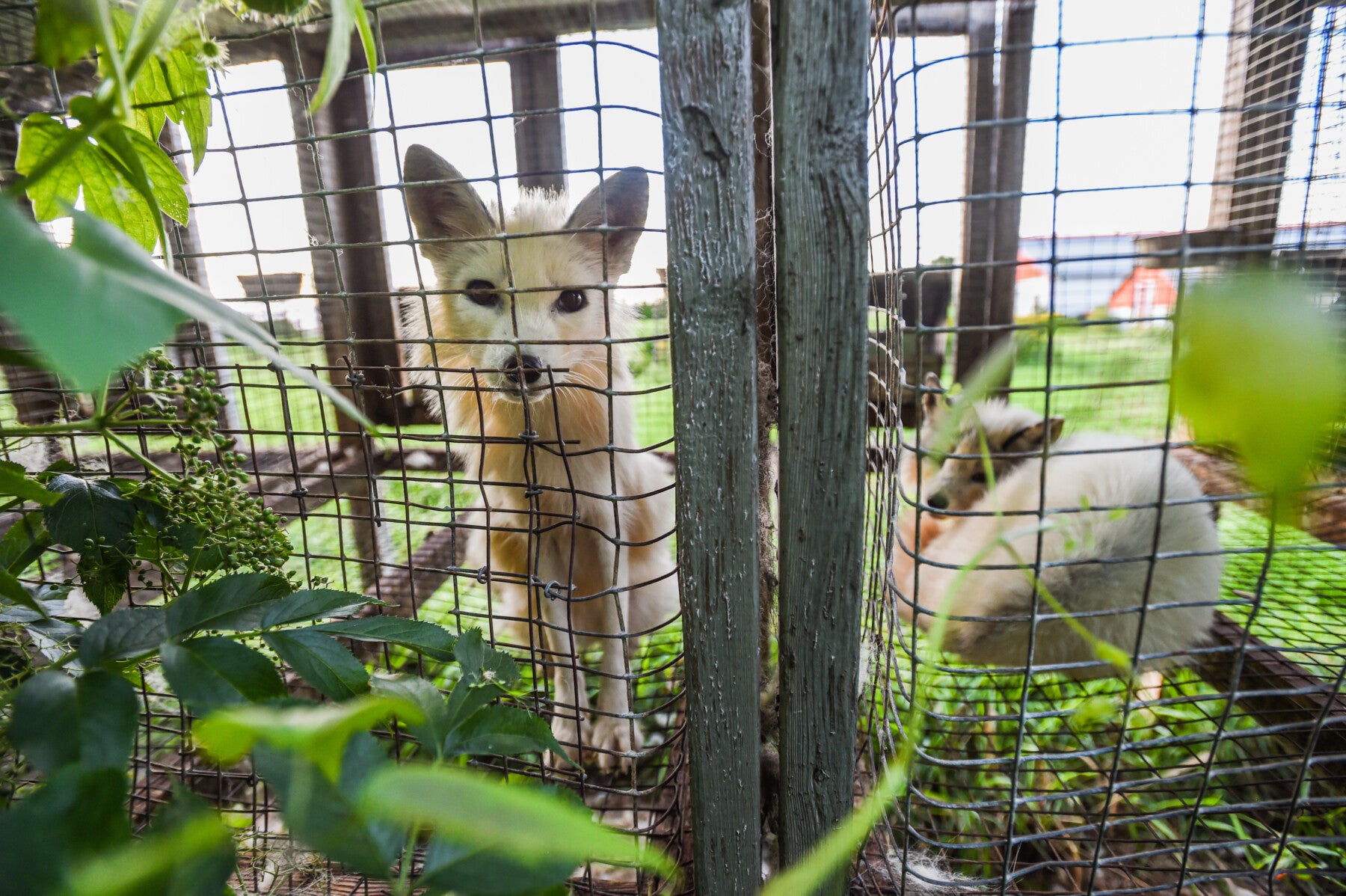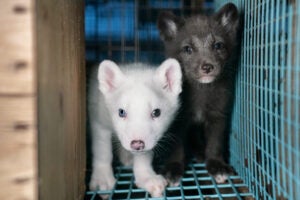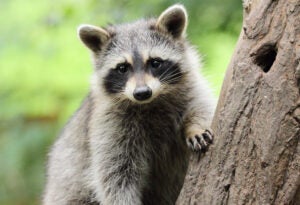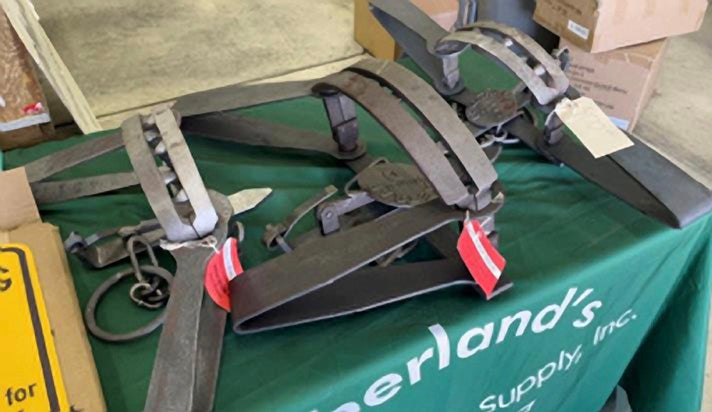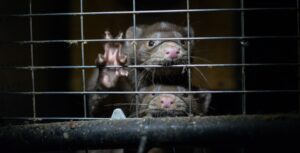
BRUSSELS—Animal protection charity Humane Society International/Europe strongly condemns Denmark’s plan to import 10,000 mink from Iceland, Norway, Spain, Poland and Finland to start a new breeding programme for fur farms once the country’s temporary mink breeding and farming ban is lifted from Jan. 1, 2023. Only around 1% of Danish fur farmers (14 out of more than 1,200 mink farm companies) applied for State Aid to re-start business if the temporary ban was lifted.
Two years ago, all Danish mink farms were shut down on government order and the animals were gassed to death following the discovery that a mink variant of the coronavirus could be transmitted to humans, and that hundreds of SARS-CoV-2 outbreaks had been recorded on mink farms across Europe. It remains unclear how the imported animals will be health screened, and if a solution is not in place in time, all the animals could potentially be killed upon arrival.
Dr Joanna Swabe, senior director of public affairs at HSI/Europe, commented: “It is contemptible that 10,000 mink are to be transported to Denmark, including 2,000 animals currently being shipped from Iceland across rough winter seas, to refill the barren wire cages on a handful of Danish fur farms whose owners decided to continue profiting quite literally off the backs of defenceless animals. This is happening as across the EU, more than one million people so far have signed an official petition calling for an end to all fur farming. Mink farms are a ticking time bomb for disease risk, and we urge both the competent national authorities and the European Commission to closely scrutinise any mass movement of potentially infectious animals, as well as act to shut down the fur trade before it delivers the next pandemic.”
With consumers and designers alike increasingly rejecting fur, the industry has been in financial decline for years. The pandemic compounded this decline, hastening the closure of fur farms in the Netherlands and the introduction of bans in several other EU countries. However, SARS-CoV-2 continues to pose a threat to public health for as long as the factory farming of mink—a species highly susceptible to this virus and a source of viral mutations—is allowed to take place.
Although Danish authorities have given the green light for fur production to resume, there is growing public support for a total ban on fur farming. Indeed, Denmark was one of the first EU Member States to reach the national threshold for signatures for the European Citizens’ Initiative for a Fur-Free Europe, which calls for a ban on all fur farming across the European Union. After just seven months, this petition has amassed more than 1.1 million signatures.
Background information on fur farming:
- More than 100 million animals are killed for their fur every year worldwide—that is equivalent to three animals dying every second, just for their fur.
- Fur farming has been banned in 19 European countries, including Malta, Ireland, Estonia, France, Italy and most recently Latvia on Sept. 22, 2022. Political discussions on a ban are also underway in Romania, Lithuania, Spain and Poland. A further two countries (Switzerland and Germany) have implemented such strict regulations that fur farming has effectively ended, and three other countries (Denmark, Sweden and Hungary) have imposed measures that have ended the farming of certain species. Mink farming is also being phased out in the Canadian province of British Colombia. The UK was the first country in the world to ban fur farming, in 2003.
- Outbreaks of COVID-19 have been documented on over 480 mink fur farms in 12 different countries in Europe and North America since April 2020.
- Fur also comes with a hefty environmental price tag including C02 emissions from intensively farming carnivorous animals and the manure runoff into lakes and rivers. A cocktail of toxic and carcinogenic chemicals, such as chromium and formaldehyde, is used to preserve the fur and skin to stop it from rotting.
- An increasing number of fashion designers and retailers are dropping fur cruelty. In the last few years alone, Moncler, Dolce & Gabbana, Canada Goose, Oscar de la Renta, Valentino, Gucci, Burberry, Versace, Chanel, Prada and other high-profile brands have announced fur-free policies.
ENDS
Media Contact: Yavor Gechev, communications director for HSI/Europe: ygechev@hsi.org

